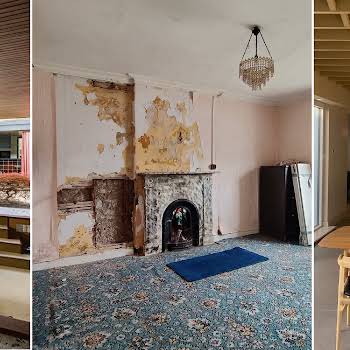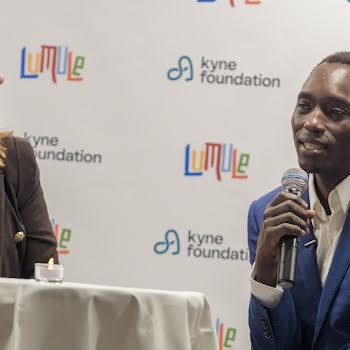2024 Budget: How will women be impacted by the cuts and credits?
By Sarah Finnan
10th Oct 2023
10th Oct 2023
Budget 2024 was revealed this afternoon with government officials signing off on a number of measures including cuts to childcare fees, cost-of-living supports and increase Renters' Credit. But is it enough? Here are our key takeaways from Budget 2024.
The cost of living crisis, the childcare crisis, the environmental crisis, the housing crisis; the country is not in the midst of one singular crisis, but many… and the list of things that people have to contend with only grows by the day. As IMAGE Editorial Director Dominique McMullan noted, the word crisis no longer carries much weight, so often has it been used of late. With that in mind, everyone is asking the same question; what is the government doing to help the situation?
The total cost of Budget 2024 is around €6.4 billion, with taxation measures accounting for approximately €1.1 billion of that sum.
Speaking on the Committee on Budgetary Oversight’s pre-Budget 2024 report, Cathaoirleach Deputy Barry Cowen TD said, “Budget 2023 took place in an environment characterised by rising energy prices, rising inflation, and a cost-of-living crisis. While some of these challenges have begun to slowly subside, they nevertheless pose a serious challenge for our economic and social well-being. The economic outlook is still characterised by higher-than-normal inflation, high energy prices, and the impact of rising interest rates can now be felt across the economy, from large businesses to small households.”
Also citing high unemployment and problematic inflationary issues, Cowen said that the powers that be have “a delicate balance to strike”.
Here are our key takeaways from Budget 2024.
Education and childcare
Childcare fees are set to be cut by a further 25%, but not until September 2024.
Commenting on this, National Women’s Council (NWC) Director Orla O’Connor said:
“A 50% reduction in childcare fees over two budgets will make a significant difference to women and families and is very welcome and urgently needed. We must now build on this investment and move towards the delivery of a public childcare model, similar to our primary school system. We know that this model has shown to be the most effective in reducing child poverty, fighting social exclusion, and being a game-changer for women’s equality. It also ensures better pay and conditions for the predominantly female workforce in the sector. We call on the Government to commit to a public childcare model following Budget 2024.”
Free school books will be provided for students in the first three years of secondary school. This will be rolled out next September and will give over 770,000 primary and secondary school students access to free textbooks and workbooks. Calculators, dictionaries and copybooks will also be included in the scheme.
Regarding third-level education, it’s expected that families with an income of less than €100,000 will benefit from undergraduate fees of €1,000 – €1,500.
The Hot School Meals programme will be expanded to include a further 900 primary schools, and €10.5 billion will be allocated to the Department of Education for additional teaching posts to support students with special educational needs, in addition to 1,200 further Special Needs Assistants (SNAs).
Violence against women
€12m extra funding has been announced to tackle violence against women, including funding for the new Domestic, Sexual and Gender-Based Violence Agency due to be established in January 2024.
Ms O’Connor of the NWC said: “It’s very welcome to see this increase in funding in tackling our epidemic of violence against women, and specifically the funding for the new agency. It’s important that the Third National Strategy on violence against women is properly costed now, and that frontline services are properly resourced.”
Free Contraception and IVF
There have been no announcements on the free contraception or IVF schemes, except to ensure women will not age out of the free contraception scheme by increasing eligibility to 31 years of age. Ms O’Connor said:
“Women’s health needs will continue through 2024, despite this lack of funding and investment in the development of critical health services. We are particularly concerned that there has been no announcement on the Mother and Baby Unit, which would support women with severe and complex mental health difficulties alongside their babies.”
Cost of living
Budget 2024 is expected to have a range of cost-of-living payments including three energy credits paid in instalments of €150 each. They will be rolled out between the end of this year and next April.
However, despite continued high fuel and energy prices as well as increased grocery prices, senior coalition figures have already indicated that supports will be less than the €4.1 billion outlined in last year’s budget – once-off cost-of-living measures outlined in Budget 2024 only amount to a total of €2.7 billion, while non-core expenditure will total €4.75 billion, including an additional €250 million for the public capital programme funded by windfall corporation tax receipts.
Minister for Finance Michael McGrath estimates that inflation for this year will be just over 5.25% with that figure falling to 2.9% next year. He projects that there will be a general government surplus of €8.8 billion this year and €8.4 billion for next year.
Housing
The Renters’ Credit will increase next year from €500 to €750.
According to RTÉ, there will be a temporary tax relief for landlords over the next few years. Rental income of €3,000 for 2024 will be disregarded for income tax. This will increase to €4,000 in 2025 and €5,000 in 2026 and 2027. In order to avail of the measure, landlords must keep their property on the rental market for the full four-year period.
If you own your home, you could be eligible for mortgage interest relief of 20% on annual increase amount, capped at €1,250 with this being available to those whose principal private residence has an outstanding mortgage of between €80,000 – €500,000 as of December 31, 2022. Mr McGrath estimates that the measure will benefit approximately 165,000 mortgage-holders, at a cost of €125 million.
In further good news, the Help to Buy scheme will also be extended to the end of 2025.
The Department of Housing will receive €7 billion – €1.9 billion of which will go towards creating 9,300 new social housing units. A further €265 million will go to providing over 6,000 affordable homes while €207 million will be spent on bringing vacant and derelict homes back into supply.
Social welfare
Core social welfare and pension payments will increase by €12 per week from January.
The weekly income threshold for the Working Family Payment will also increase by €54.
The Qualified Child Increase will be raised by €4, bringing it €46 per week for under 12s and €54 per week for over 12s. Most weekly social welfare payments include an additional payment known as an Increase for a Qualified Child (IQC) in respect of each qualified child up to age 18. This is extended to encompass older school or college-going children up to age 22 under certain circumstances.
A €300 lump-sum payment will be made to those in receipt of the fuel allowance while a €200 lump-sum payment will be made to those in receipt of the Living Alone Allowance.
An extra child benefit payment will be paid before Christmas along with a double welfare and pension payment in January.
Budget 2024 is also expected to include an unemployment benefit scheme, tailored to those who have lost their jobs.
Taxation
The top rate of tax is expected to be increased from last year’s €40,000 to €42,000. In addition, Universal Social Charge (USC) will be reduced from 4.5% t0 4% while the 2% rate band will expand to include incomes of up to €25,760.
The personal, Employee PAYE and earned income tax credits will all be increased by €100 as will Pay Related Social Insurance (PRSI) contributions, which will increase by 0.1% from October next year.
Minimum wage will increase by 40c an hour bringing it to €12.70.
Transport
€3.5billion of the total budget will be allocated to the Department of Transport. Students and young people will qualify for cheaper public transport fees with 24 and 25-year-olds set to become eligible for the Young Adult Card for the first time. This card will enable them to access half-price fares on participating public transport. These additional cuts come alongside the 20% fare reductions for all, originally introduced as a temporary cost-of-living measure, and has been secured for another year.
Garda
Budget 2024 also provisioned for 1,000 additional gardaí and 250 civilian support staff. €25 million will be made available for the garda overtime.
Feature image by Erika Fletcher on Unsplash.























